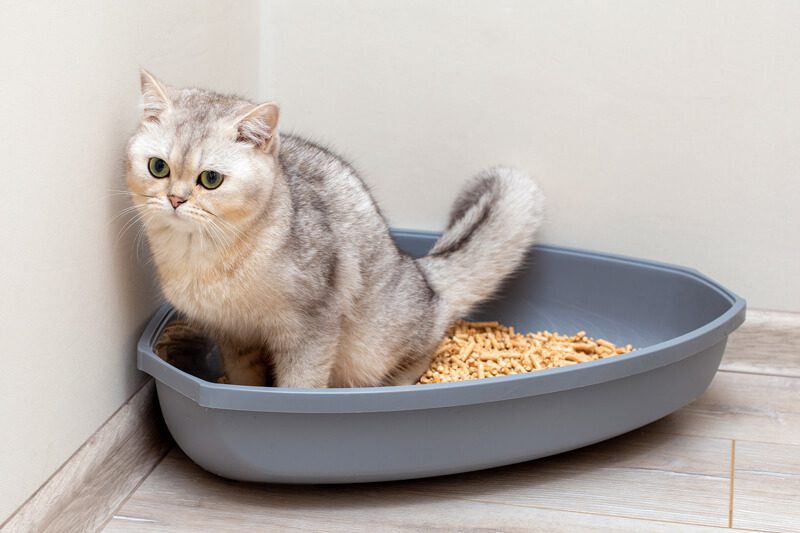Tips for Recognizing the Signs and Symptoms of Cat Constipation
When our cats aren’t feeling their best, it can be hard to figure out what’s wrong. One common issue that might not be obvious at first is cat constipation. Learn how to spot the signs and symptoms of this condition. If you notice any of these signs, it’s a good idea to get in touch with the Animal Emergency Center of Tulsa in Tulsa, OK, at (918) 665-0508. Our team is ready to help your cat feel better.

Understanding Cat Constipation
Before we dive into the signs, let’s talk about what cat constipation is. It’s when your cat has a hard time going to the bathroom or doesn’t go as often as they should. This can make them uncomfortable and, if not taken care of, can lead to more serious health issues.
What Causes Constipation in Cats?
Several things can lead to your cat having constipation. It could be because they’re not drinking enough water, they’re eating food that doesn’t have enough fiber, or they’re not getting enough exercise. Sometimes, it can also be because of hairballs blocking their system, especially in long-haired breeds.
Signs Your Cat May Be Constipated
1. Less Frequent Bathroom Visits
If you notice that your cat is going to the litter box less often than usual, this could be a sign of constipation. Normal cats typically use the litter box once or twice a day for bowel movements.
2. Struggling in the Litter Box
Watch for any signs of your cat straining or spending a long time in the litter box without producing much. This can be a clear sign that they’re having trouble.
3. Hard, Dry Stools
The stools of a constipated cat are often hard and dry, which can be noticeably different from their normal bathroom habits.
4. Lack of Appetite
Cats with constipation might not eat as much as they usually do. If your cat is eating less or showing less interest in food, it’s worth paying attention to.
5. Unusual Lethargy
A cat that’s not feeling well may seem more tired than usual or not as interested in playing or interacting.
When to Call the Vet
If you see any of these signs, it’s important to call the vet. While we’re here to give you information, it’s vital to get professional advice and treatment from a vet to help your cat feel better. The Animal Emergency Center of Tulsa is always here to assist. Just give us a call at (918) 665-0508 if you’re worried about your cat’s bathroom habits or overall health.
How the Vet Can Help
A vet can do a check-up on your cat to see what’s causing the constipation. They might suggest changes in diet, medication to help things move along, or other treatments depending on what’s going on.
Preventing Cat Constipation
Keeping Your Cat Hydrated
One of the best ways to prevent constipation is to make sure your cat is drinking enough water. Fresh, clean water should always be available.
The Right Diet
Feeding your cat a balanced diet with the right amount of fiber can help keep their digestive system running smoothly.
Regular Exercise
Playing with your cat and encouraging them to move around can help prevent constipation and other health issues.
Contact Animal Emergency Center for Your Cat’s Digestive Care
Watching out for the signs of cat constipation and taking action quickly can help your cat avoid discomfort and more serious health problems. Remember, if you’re ever in doubt about your cat’s health, the Animal Emergency Center of Tulsa is just a phone call away at (918) 665-0508. Our team is here to provide the care your cat needs and to answer any questions you might have.
